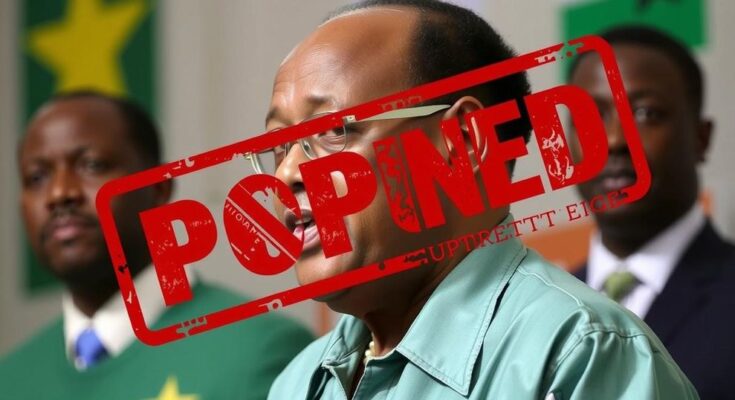Togo has postponed its senatorial elections to February 15 to allow for better organization among political parties. The elections are a critical step in implementing a controversial new constitution, which faces opposition. Major opposition parties, including the ANC, are expected to boycott, claiming it represents a power consolidation effort by President Gnassingbè, who has ruled since 2005.
Togo has announced a postponement of its first senatorial elections to February 15, as stated in a presidential decree released on Friday evening. This decision aims to provide political parties with additional time to organize and register their candidates, with the official campaign scheduled to commence on January 30. The upcoming elections are a crucial phase in the implementation of a contentious new constitution that has faced substantial criticism from opposition members and civil society groups. Despite the rescheduling, significant opposition parties, including the National Alliance for Change (ANC), plan to boycott the elections, which they view as part of a broader “constitutional coup d’état.” Established through a constitutional revision in 2002, the Senate, which remains unformed, will consist of 61 members, with 41 being elected by regional and municipal councillors, while the remainder will be appointed by the president of the Council of Ministers. Critics argue that the new constitution consolidates power for President Faure Gnassingbè, who has been in office since 2005, succeeding his father, who ruled for 38 years. Gnassingbè, the leader of the ruling party UNIR, secured a substantial victory in the April 2024 legislative elections, winning 108 out of 113 seats.
The recent postponement of senatorial elections in Togo is rooted in a significant political context. The elections are essential for fulfilling the requirements of a new constitution, which has been heavily scrutinized and denounced by opposition groups claiming it facilitates a power grab by President Faure Gnassingbè. Following a constitutional amendment in 2002 that established the Senate, this upcoming vote represents an opportunity for political reorganization in the country. With the elections now scheduled, questions regarding legitimacy, representation, and political participation loom large.
In conclusion, the delay of Togo’s senatorial elections emphasizes the ongoing political tensions in the country, particularly concerning the new constitution and the allegations of authoritarianism against President Gnassingbè. The decision to shift the date allows for greater organizational efforts among political entities; however, with key opposition groups poised to boycott, the legitimacy of the electoral process remains in significant doubt as these developments unfold.
Original Source: www.barrons.com




